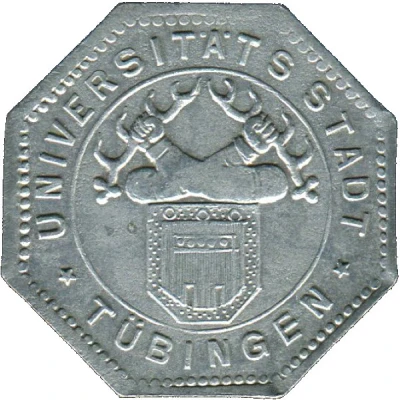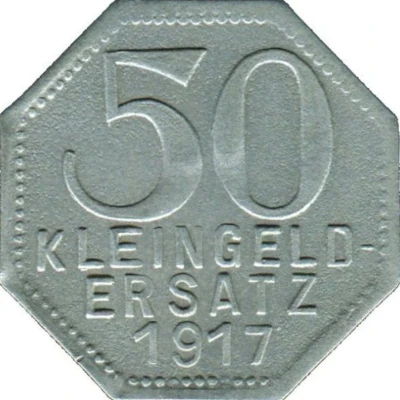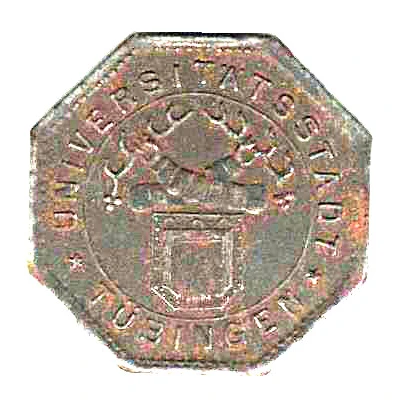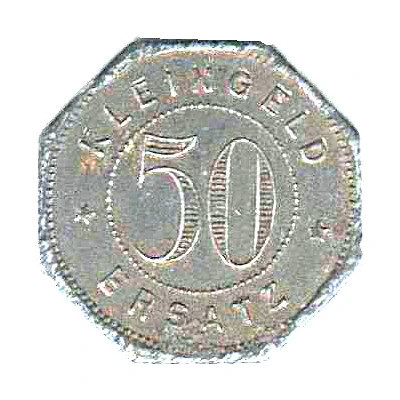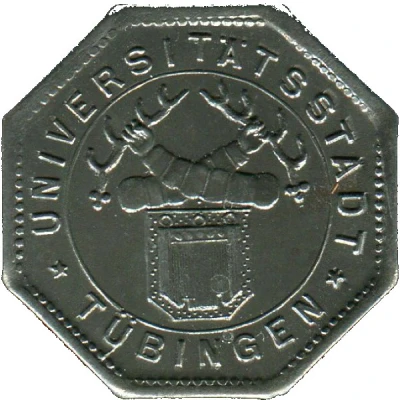
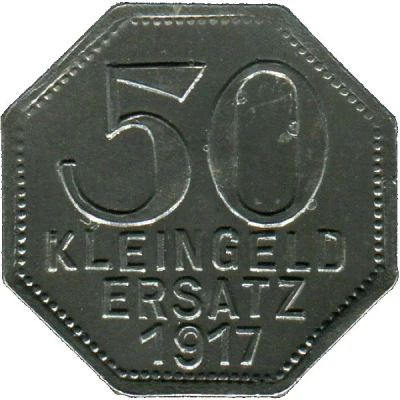

© derfnumismatics
50 Pfennigs - Tübingen
1917 year| Iron | 3.57 g | 21.9 mm |
| Issuer | City of Tübingen (Federal state of Württemberg) |
|---|---|
| Emperor | William II (Wilhelm II) (1888-1918) |
| Type | Standard circulation coin |
| Year | 1917 |
| Value | 50 Pfennigs (50 Pfennige) (0.50) |
| Currency | Mark (1914-1924) |
| Composition | Iron |
| Weight | 3.57 g |
| Diameter | 21.9 mm |
| Thickness | 1.51 mm |
| Shape | Octagonal (8-sided) |
| Technique | Milled |
| Orientation | Medal alignment ↑↑ |
| Demonetized | Yes |
| Updated | 2024-10-04 |
| Numista | N#54411 |
|---|---|
| Rarity index | 73% |
Reverse
Pearl rim surrounding legend and denomination
Script: Latin
Lettering:
50
KLEINGELD
ERSATZ
1917
Edge
Plain
Comment
Issuing authority: [Stadt, Württemberg]Interesting fact
One interesting fact about the 50 Pfennigs - Tübingen 1917 coin is that it was issued during a time of economic turmoil in Germany, known as the "Inflationary Period" (1914-1923), when the value of the German mark plummeted, and the prices of goods and services skyrocketed. To combat this issue, the government issued coins with lower denominations, like the 50 Pfennigs, to help people purchase everyday items. Despite the economic challenges, the coin's iron composition was a unusual choice, as most coins of that time were made of copper or silver.
Price
| Date | Mintage | VG | F | VF | XF | AU | UNC |
|---|---|---|---|---|---|---|---|
| 1917 | 37985 | - | - | - | - | - | - |
Values in the table are based on evaluations by sales realized on Internet platforms. They serve as an indication only for 50 Pfennigs - Tübingen 1917 coin.
